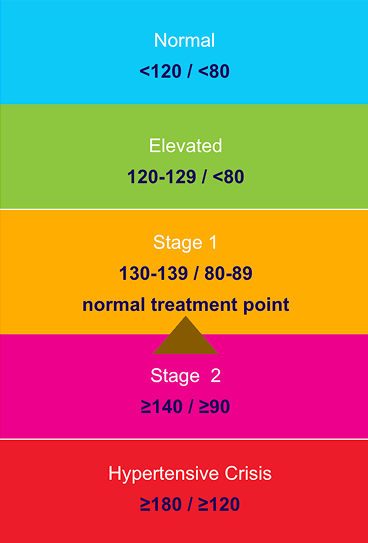Frequently asked questions.
What happens during the procedure?
After you are sedated, your doctor will make a small incision to insert a very thin tube (catheter) into the artery leading to the kidney. The doctor will then use this device to calm the excessive activity of the nerves near the kidney.10 The tube is then removed, leaving no device behind. Adverse events include, but are not limited to, bruising and pain. Results may vary.
What happens after the procedure?
You may experience some bruising following the procedure. Your doctor will decide when you can return to normal activities. At your doctor’s discretion, you may have two follow-up appointments.
- One with the doctor who performed your procedure
- One with the doctor who treats your high blood pressure
Will I still need to take blood pressure medication after the procedure?
Yes, continue taking all blood pressure (and other) medication as prescribed unless your doctor recommends a change.
References
1.Medtronic Symplicity Spyral multi-electrode renal denervation catheter instructions for use.
2.Kandzari DE, Townsend RR, Kario K, et al. Safety and Efficacy of Renal Denervation in Patients Taking Antihypertensive Medications. J Am Coll Cardiol. November 7, 2023;82(19):1809–1823.
3.Böhm M, Kario K, Kandzari DE, et al. Efficacy of catheter-based renal denervation in the absence of antihypertensive medications (SPYRAL HTN-OFF MED Pivotal): a multicentre, randomized, sham-controlled trial. Lancet. May 2, 2020;395(10234):1444-1451.
4.U.S. Department of Health and Human Services. The Surgeon General’s Call to Action to Control Hypertension. Washington, DC: U.S. Department of Health and Human Services, Office of the Surgeon General; 2020.
5.World Health Organization. https://www.who.int/news-room/fact-sheets/detail/hypertension. Accessed Oct 16, 2024.
6.Whelton P, Carey R, Aronow W, et. al. 2017 ACC/AHA/AAPA/ABC/ACPM/AGS/APhA/ASH/ASPC/NMA/PCNA Guideline for the Prevention, Detection, Evaluation, and Management of High Blood Pressure in Adults: A Report of the American College of Cardiology/American Heart Association Task Force on Clinical Practice Guidelines. J AM Coll Cardiol. May 15, 2018;71(19):2199-2269.
7.High blood pressure dangers: Hypertension’s effects on your body. Mayo Clinic. https://www.mayoclinic.org/diseases-conditions/highblood-pressure/in-depth/high-blood-pressure/art-20045868. Accessed Oct 16, 2024
8.How High Blood Pressure Can Lead to Kidney Damage or Failure. American Heart Association. https://www.heart.org/en/health-topics/high-blood-pressure/health-threats-from-high-blood-pressure/how-high-blood-pressure-can-lead-to-kidney-damage-or-failure. Accessed October 16, 2024.
9.Sata Y, Head G, Denton K, May CN, Schlaich MP. Role of the Sympathetic Nervous System and Its Modulation in Renal Hypertension. Frontiers in medicine. 2018;5(82):1-10.
10.Coates P, Tunev S, Trudel J, Hettrick DA. Time, Temperature, Power, and Impedance Considerations for Radiofrequency Catheter Renal Denervation. Cardiovasc Revasc Med. September 2022;42:171–177.












